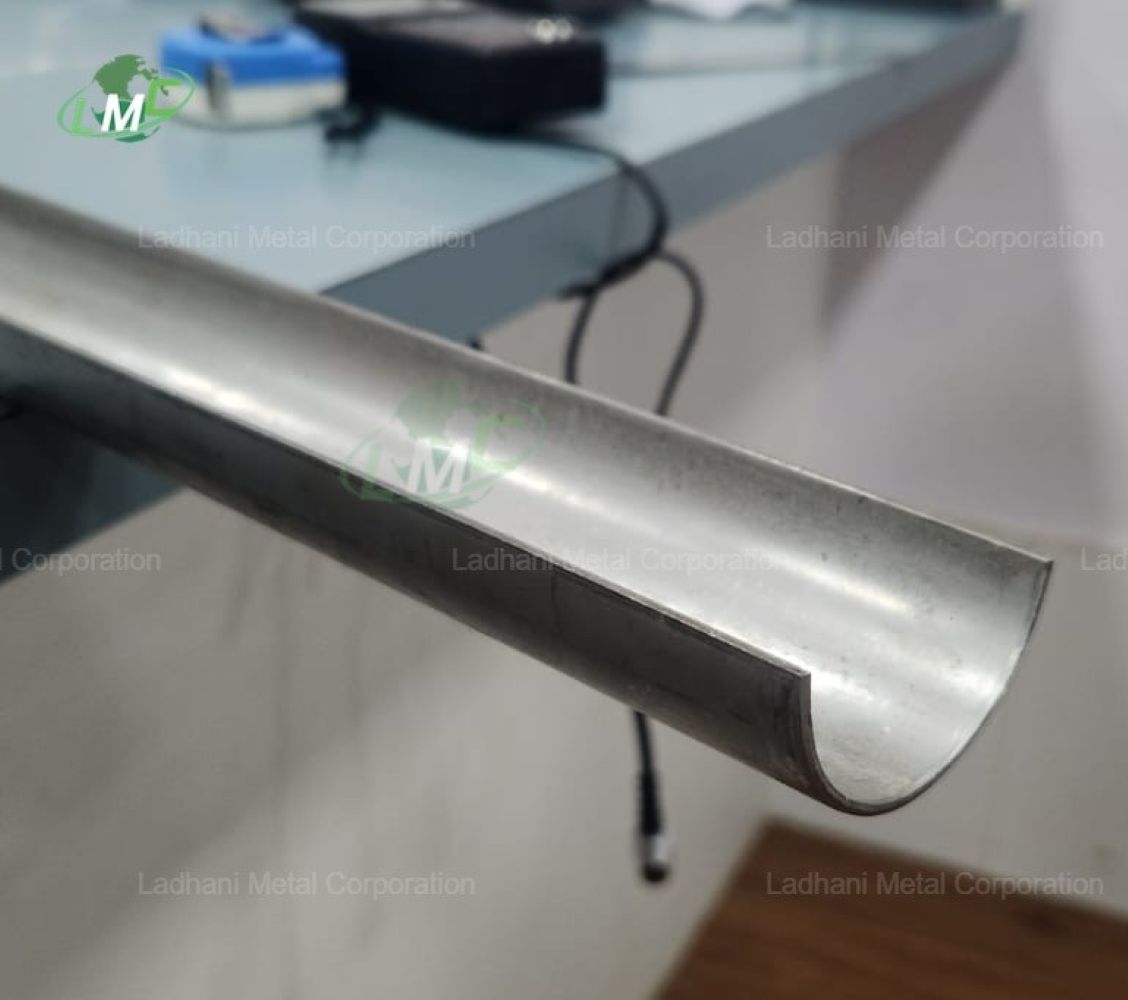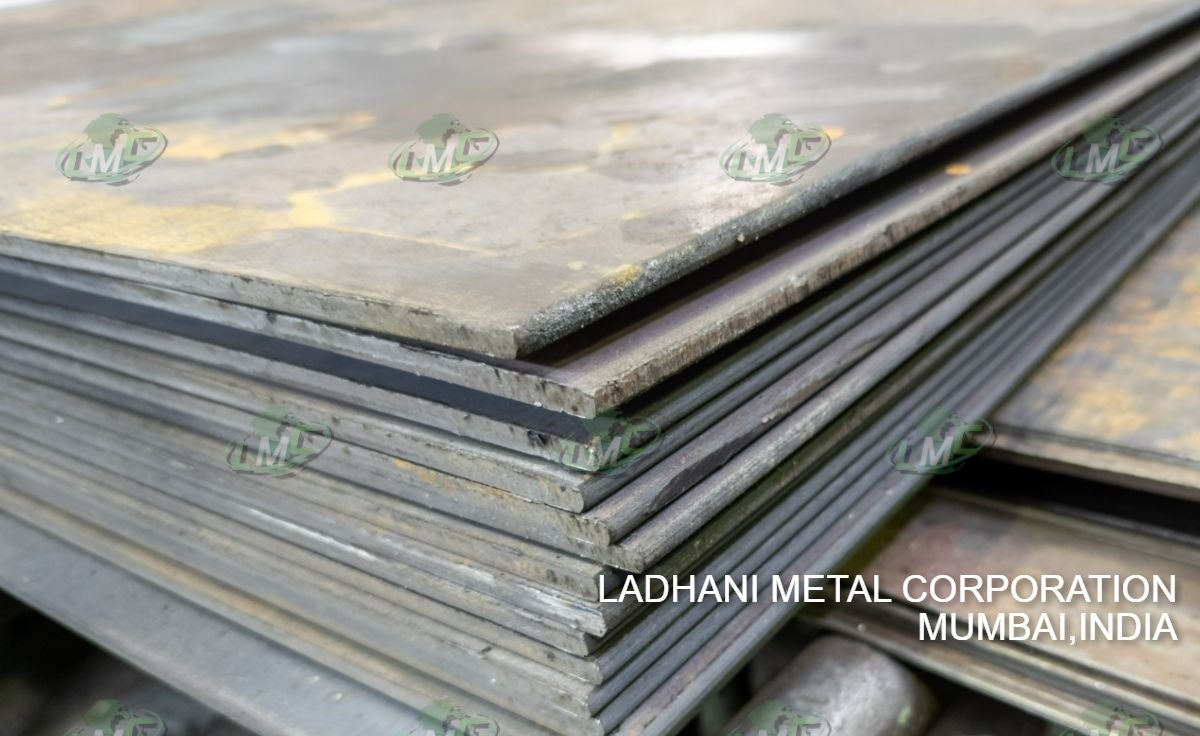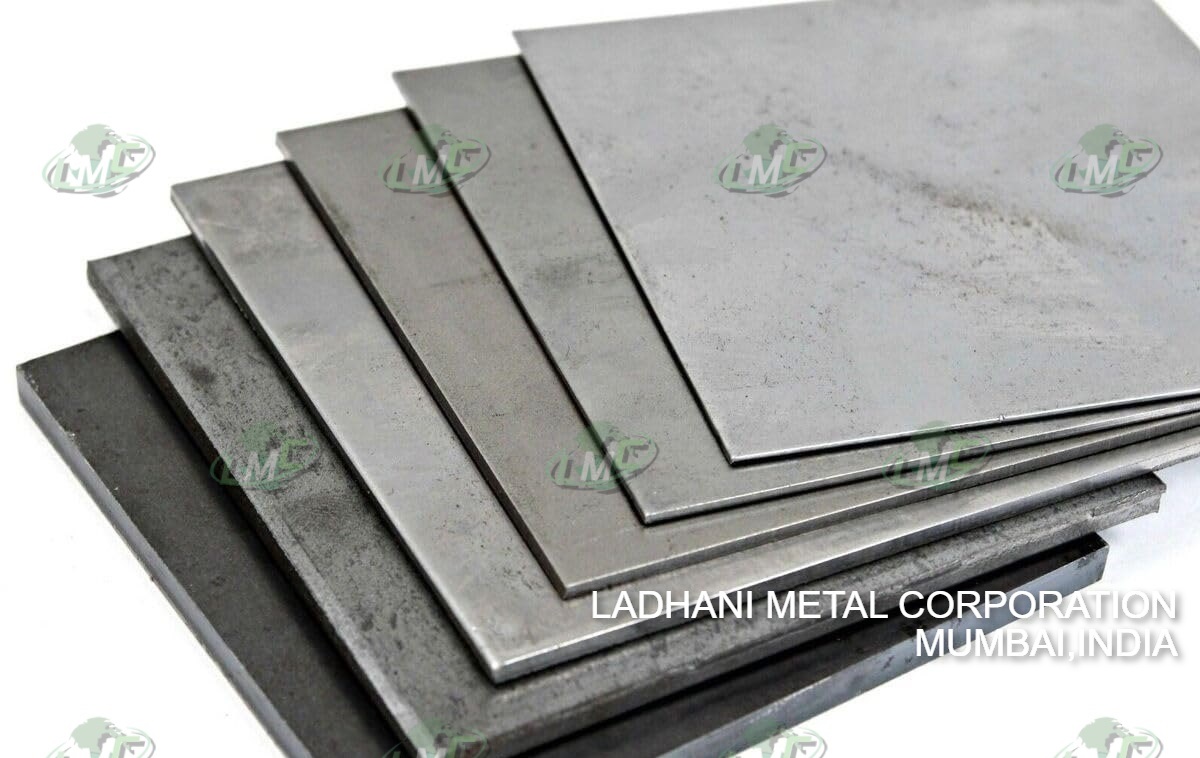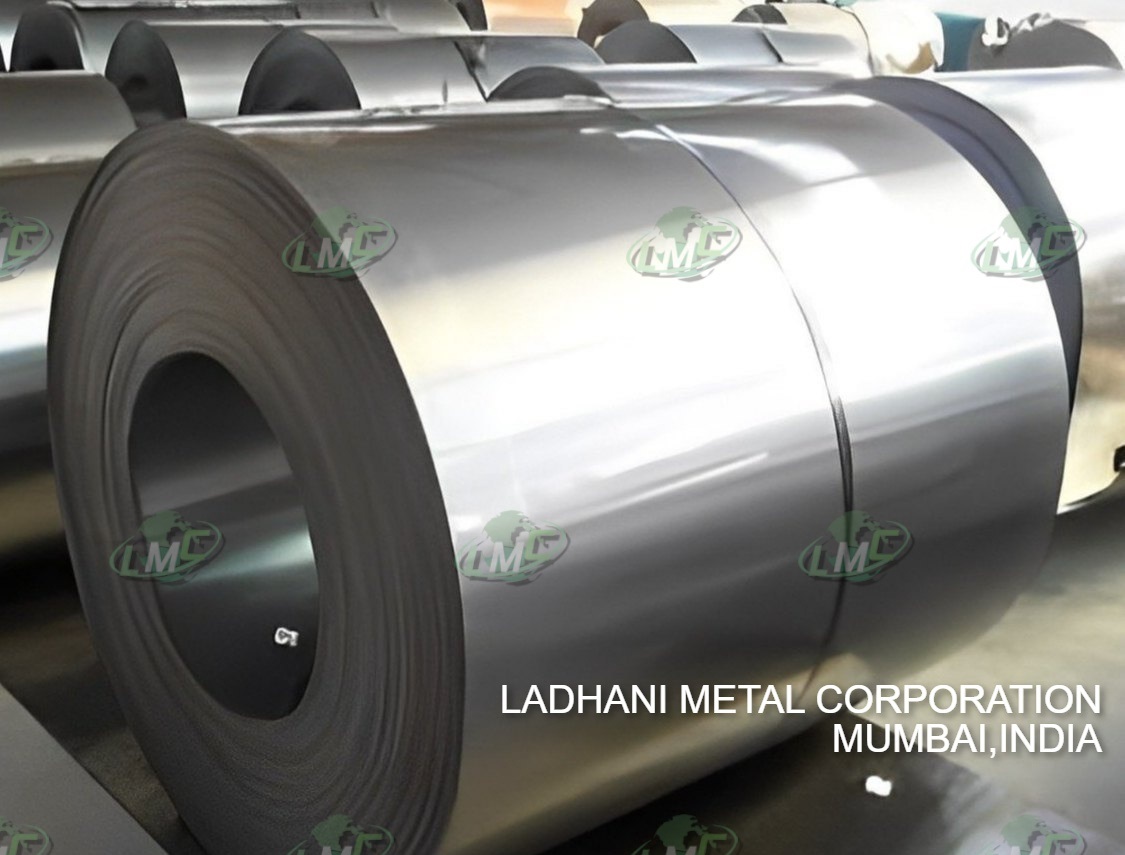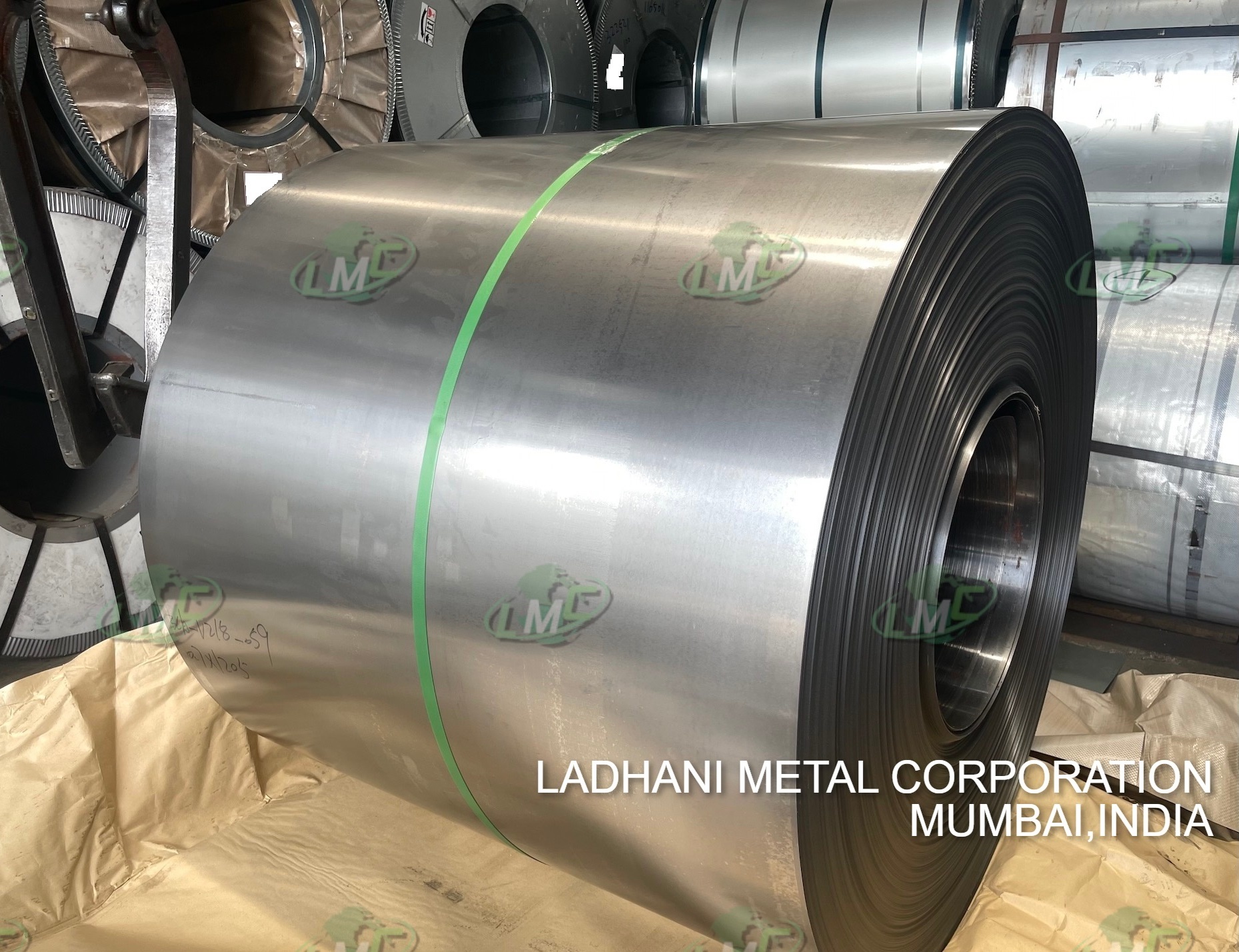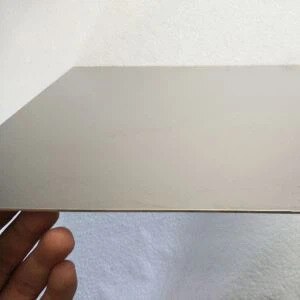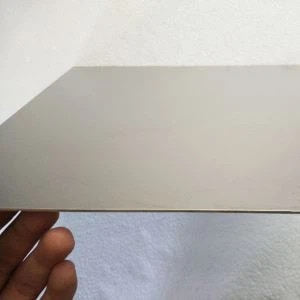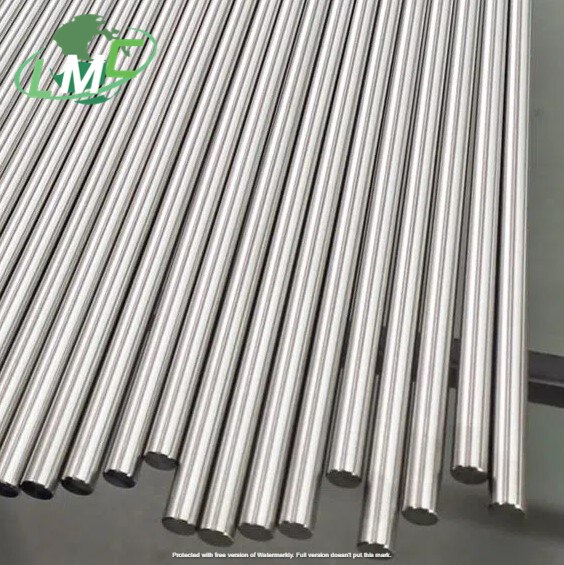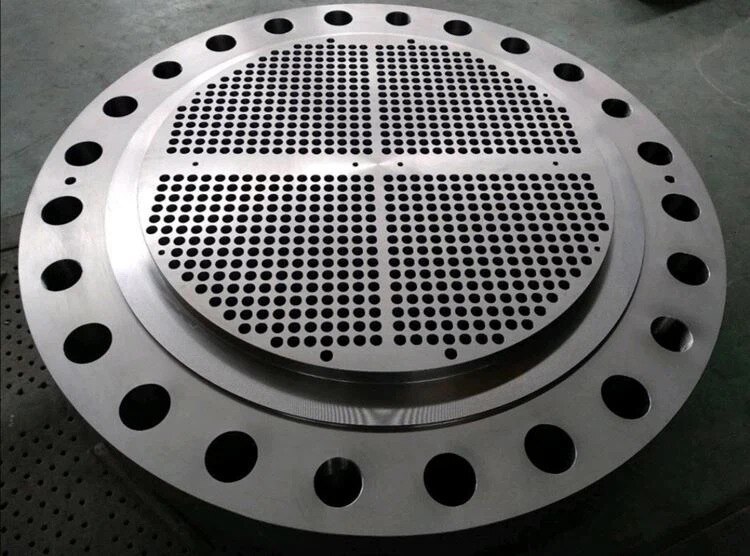Ladhani Metal Corporation offers Half Round Tube Shields for LTSH (Low Temperature Superheater) Tubes, Type-III design, specially engineered to protect boiler tubes against erosion, oxidation, and damage from high-velocity flue gases and abrasive ash particles. LTSH tubes are positioned in the convection pass of boilers and are frequently exposed to erosive environments that cause tube thinning and premature failures. The Type-III Half Round Shield provides enhanced coverage and mechanical strength, ensuring longer operational life and improved reliability of boiler tube systems. Function of LTSH Tubes • Carry steam through the low-temperature superheater section of the boiler • Operate in moderate-to-high flue gas velocity zones with ash-laden environments • Require Half Round Tube Shields to minimize erosion, scaling, and tube wear Ladhani Metal Corporation manufactures, supplies, and exports Half Round Tube Shields for LTSH, Type-III, in customized sizes, radii, and thicknesses, meeting the requirements of domestic and international boiler systems. Available Grades • SS 304 / SS 304L • SS 310 / SS 310S • SS 316 / SS 316L • SS 410 / SS 420 / SS 430 • 1Cr13 • 1Cr18Ni9Ti • 1Cr20Ni14Si2 • 1Cr25Ni20Si2 • Cr23Ni13 • Cr25Ni20 Applications: Specifically designed for low-temperature superheater sections in thermal power plants, WHRBs, HRSGs, and industrial boilers where erosion protection is critical. Uses • Shields LTSH tubes from erosion, oxidation, and soot blower impact • Prevents thinning and premature tube failures in convection zone boilers • Enhances tube reliability and efficiency in high-wear boiler sections • Reduces maintenance frequency and downtime in large-scale power plants Features • Excellent erosion and oxidation resistance in boiler atmospheres • High thermal stability under fluctuating operating conditions • Manufactured from stainless steels and heat-resistant alloys • Precision-engineered to match Type-III LTSH tube design for proper fitment Applications • Power generation boilers – Provides reliable protection for LTSH sections • Waste heat recovery boilers – Guards tubes against high-velocity flue gas streams • HRSGs – Shields superheater tubes in heat recovery systems • Industrial boilers – Ensures long-term tube safety and efficiency in steam production Conclusion The Half Round Tube Shield for LTSH, Type-III, by Ladhani Metal Corporation provides robust, long-lasting protection for boiler tubes operating in erosive and oxidizing conditions. Available in a wide range of grades including SS 304/304L, 310/310S, 316/316L, 410/420/430, 1Cr13, 1Cr18Ni9Ti, 1Cr20Ni14Si2, 1Cr25Ni20Si2, Cr23Ni13, and Cr25Ni20, these shields are manufactured to international quality standards for global supply. For technical support and supply requirements, contact Ladhani Metal Corporation. #Mumbai #Pune #Ahmedabad #Vadodara #Surat #Rajkot #Jamnagar #Bharuch #Ankleshwar #Vapi #Delhi #Faridabad #Ghaziabad #Noida #Gurugram #Chennai #Coimbatore #Tiruchirappalli #Hyderabad #Visakhapatnam #Vijayawada #Bangalore #Mangalore #Mysore #Kolkata #Durgapur #Asansol #Bhubaneswar #Rourkela #Raipur #Bhilai #Bilaspur #Nagpur #Nashik #Aurangabad #Indore #Bhopal #Jabalpur #Kanpur #Lucknow #Varanasi #Jaipur #Kota #Udaipur #Jodhpur #Chandigarh #Ludhiana #Jalandhar #Haridwar #Dehradun #Agra #Meerut #Aligarh #Moradabad #Bareilly #Mathura #Gwalior #Rewa #Satna #Sagar #Ujjain #Ratlam #Solapur #Kolhapur #Amravati #Akola #Jalgaon #Latur #Sangli #Nanded #Gandhinagar #Bhavnagar #Mehsana #Surendranagar #Junagadh #Nadiad #Nizamabad #Karimnagar #Warangal #Kurnool #Nellore #Tirupati #Madurai #Tirunelveli #Thoothukudi #Belgaum #Hubli #Tumkur #Sambalpur #Jamshedpur #Ranchi #Dhanbad #Patna #Muzaffarpur#halftubeshield #utypehalftubeshield #tubeshieldexporter #TubeShield #HalfTubeShield #SSHalfRoundShield #BoilerTubeShield #BoilerShield #TubeProtection #Tubeshieldmanufacturer #BoilerTubeProtection #SSTubeShield #MetalIndustry #SteelFabrication #IndustrialShielding #SS304Shield #SS316Shield #StainlessSteelShield #WeldOnShield #WeldedTubeShield #TubeCladding #BoilerTubeSleeve #TubeSleeve #MetalFabrication #PowerPlantSupplies #RefineryEquipment #ProcessIndustry #MetalComponent #TubeShieldForBoilers #BoilerParts #SteelSolutions #TubeShieldManufacturer #TubeShieldSupplier #SSShielding #IndustrialTubeShield #BoilerTubeGuard #CustomMetalParts #SteelIndustryIndia #MetalEngineering #HeavyIndustrySupply #StainlessSteelIndia #SteelExporters #MetalComponentExport #FabricatedProducts #SteelDealer #IndustrialSupplyIndia #BoilerTubeFittings #TubeShieldingSolutions #HalfTubeCover #HeatExchangerShield #HalfRoundReheaterShield #ReheaterTubeShield #BoilerReheaterProtection #PowerPlantTubeShield #BoilerErosionShield #SteamBoilerTubeShield #HighTempTubeShield #BoilerWearProtection
Send Message
